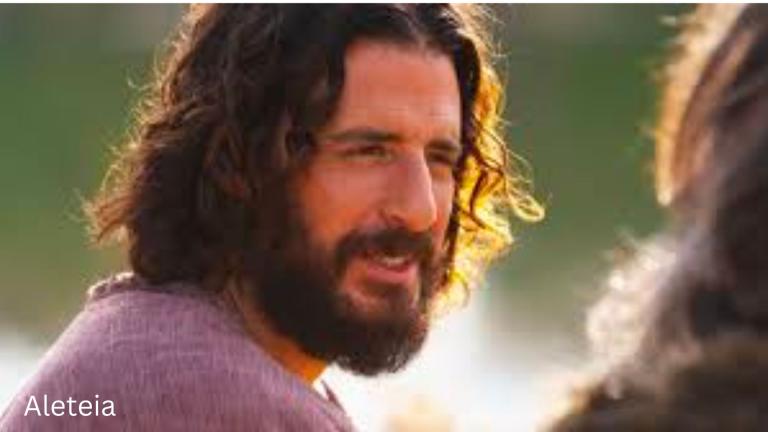
My wife and I finally sat down to watch The Chosen. The Chosen is a multi-season series based on the life of Jesus.
One of the things I like about the show is that it humanizes the stories. I don’t know about you but when I read the story of Jesus healing the paralytic (Mark 2:1-12) I fail to consider the emotions that would have been present. Instead, when I read, the story ends abruptly with, “And he got up and immediately picked up the pallet and went out in the sight of everyone” (Mark 2:12). I then either move on to the next story or I stop to consider the theological and practical implications of what I just read.
But when The Chosen depicts the events they add drama. The man slowly rises to his feet. Then, overwhelmed with emotions, he realizes that he has been healed and begins to weep.
Sure, he “got up . . . and went out in the sight of everyone” as Mark 2:12 says. But wouldn’t he have left with tears of joy? Wouldn’t he have been overwhelmed with the realization that he could walk?
I also love the way the show portrays Jesus.
Jesus has fun! He dances at the wedding in Cana. He plays with the children. He jokingly remarks about Andrew’s inability to dance!
And when the paralytic stands and begins to walk, Jesus smiles. When the leper is cleansed, Jesus embraces the man and rejoices with him.
What if we got it all wrong?
In one of the earlier episodes of The Chosen, Jesus is sitting and teaching some children. Then He poses this question to the children, “What if we got it all wrong?”
This is brilliant.
NB: btw I think we are mistaken when we only read the Bible as though Jesus, Paul, and Isaiah were speaking to them and not also to us.
The Chosen also portrays Nicodemus as someone who was asking similar questions.
In one scene, Nicodemus confronts one of his students who was adamant: “God cannot have a son. . . . Nor can God have flesh and bones. . . . God has no body, He cannot wear sandals. . . . To say so is blasphemy.”
The student proceeded to cite several examples from the Torah which, in his mind, clearly indicated that God cannot become human!—which by the way, were convincing—if we read the Torah from his perspective.
NB: The idea of God becoming human is a significant hurdle when it comes to sharing the Gospel today with members of other religious groups like Islam.
Nicodemus then replies to his student, “And if God did something that you felt contradicted the Torah, would you tell Him to get back into that box that you have carved for Him? Or would you question your interpretation of the Torah?”
You see, Nicodemus was not convinced by his student’s interpretations because he decided that if God wanted to act in a way that didn’t conform to his expectations maybe it was his expectations that were wrong.
What if we got it all wrong?
I remember very distinctly a moment in grad school when I realized that I too had put God in a box. I was standing in my living room when I suddenly realized that it was I who was in the box and God was outside of it! I had it all reversed.
Now, I suppose you might be worried. After all, if someone suggests that we got it all wrong, then, we might begin to wonder, how are we supposed to determine what is right and what is not? And who decides?
I recognize the crisis that ensues the moment we begin to consider the possibility that we have got it all wrong. The last 20+ years of my life have been living through this crisis.
It is certainly much easier to retreat to the comfortable confines of our long-held interpretations.
This is what the prophets were saying
What I find interesting is that the notion, “maybe we got it all wrong” is the message of the prophets. The prophets were urging the people to repent and return to the Lord.
There was only one problem: the people were convinced by their religiosity that they were in right and that it was the prophets who erred. “Surely God will not bring such destruction upon us, look at our faithfulness,” they muttered. To which
- Isaiah says, “What are your multiplied sacrifices to Me” (1:11) and “I hate your new moon festivals and your appointed feasts” (1:14);
- And Jeremiah says, “Your burnt offerings are not acceptable and your sacrifices are not pleasing to Me” (6:20);
- And Amos says, “I hate, I reject your festivals, nor do I delight in your solemn assemblies” (5:21).
But I’m on team Jesus/Paul/Isaiah!
Why is it that we read the Scriptures and fail to consider the possibility that Isaiah, Jeremiah, or Amos might also be speaking to us?
Why is it that we assume that we are on the side of Jesus, Paul, and the prophets? Maybe we are.
But didn’t the Pharisees and other religious leaders believe that they were doing God’s will when they crucified Jesus?
I am more and more convinced as I study the Scriptures that the Western church, which I am a part of, has got a lot wrong!
Now, I am not saying we got it all wrong [I think the Jesus part is basically correct].
But I do believe that we have missed most of the message of Jesus and most of what it means to be His disciple. And I think we have failed to understand the nature of His kingdom.
Deconstruction or reconstruction?
The word “deconstruction” gets thrown around a lot these days. And I do think we have a lot of deconstructing to do.
But I think a better focus should be on our need to reconstruct. When we reconstruct, deconstruction takes place also.
The problem is that deconstruction without reconstruction leaves us with nothing but a mess. Ruin. Ruble.
What Jesus calls us to is reconstruction.
That is what I think He means when He says, “repent and believe” (Mark 1:15). We might say that repenting is the deconstructing, and believing is the reconstructing.
You might be uncomfortable right now and I think that is good!
Let me be clear: I am not saying that I have it all figured out and that you should all listen to me. In fact, that is the point.
I have been on a journey of realizing that I am not close to having it all figured out. And I am not expecting you to be where I am now!
I am only hoping that you will daily submit to Jesus as Lord.
This might well mean that we have to take Jesus out of the box and put ourselves in it.
There is much more to say. I am sure you have questions such as: “what does he mean?”; “what might we have wrong?”; “is he suggesting that we follow some cult?”
And these are valid questions.
I will assure you that I am only suggesting that we follow Jesus.
In The Chosen, Nicodemus concluded his discussion with his student: “fear alone ensures that we remain ignorant, asleep in the safety of a rigid tradition.”
Our goal is to keep these posts free of charge. I do not intend to ever hide them behind a paywall. I can only do this if those of you who have been blessed by them and can afford to give ($5, $10, $25, or more/month) do so. You can give a tax-deductible contribution by following this link.
Please share this post and let others know about determinetruth.
If you wish to view this blog on your smartphone through the Determinetruth app simply download the “tithe.ly church” app on your smartphone and insert “determinetruth” as the church name you wish to follow. Once it is loaded, simply click on the “blog” icon and it will automatically load.
If you would like to have Rob speak at your church or organization in person or via zoom, please let us know by filling out the contact info on the Contact me tab on this site.

















